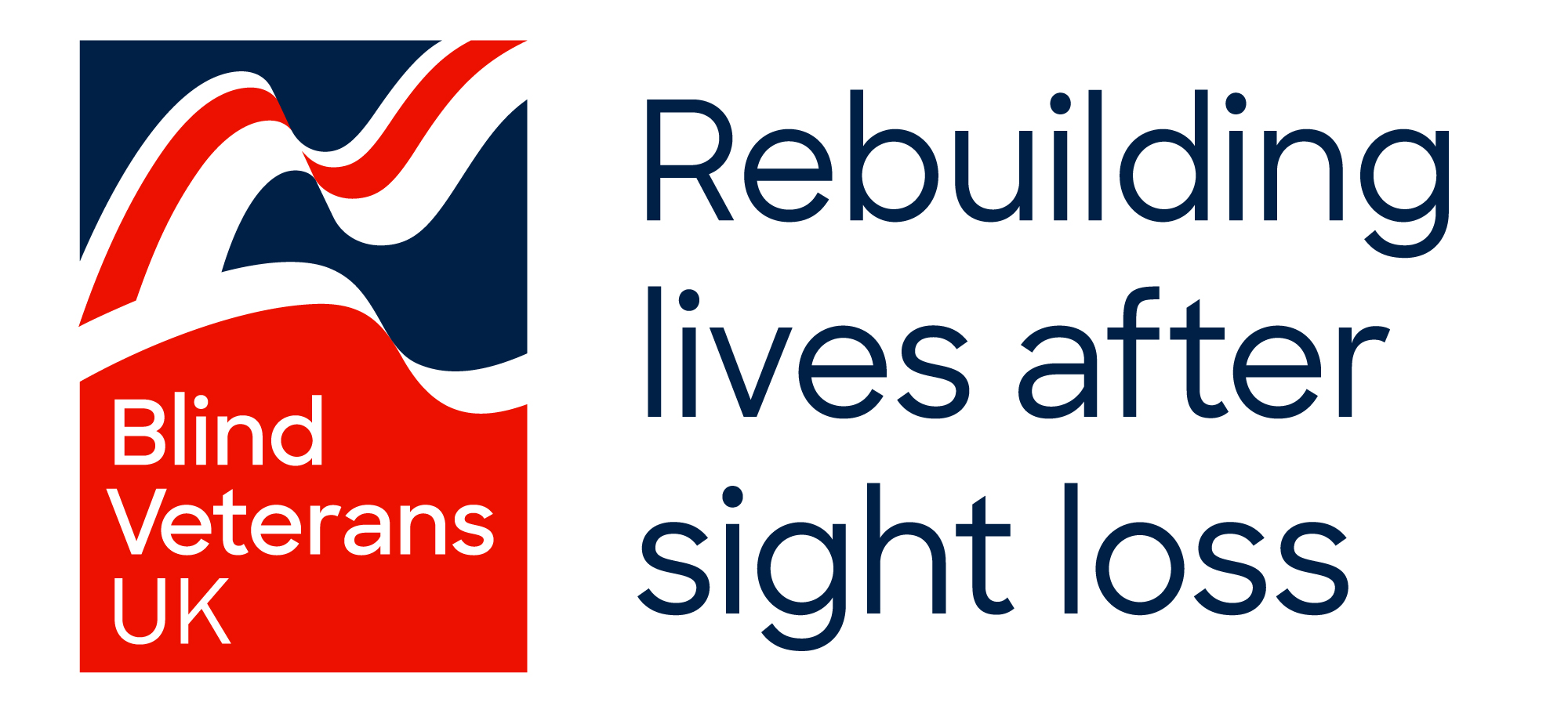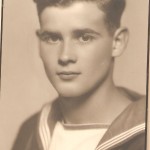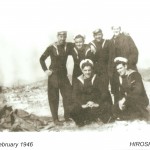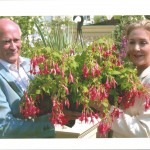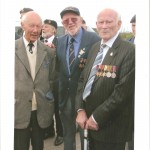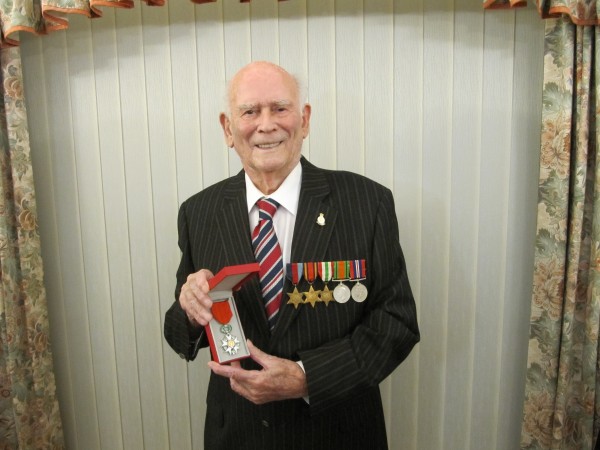
Roy Sinton, 92 and from Formby, will be supplying the fuchsias to the garden through Sintons’ Nurseries, the company he founded. He’ll also be making a miniature gardens for the flower show as part of a special week of gardening activities for blind veterans with green fingers held at the Blind Veterans UK training and rehabilitation centre in Llandudno.
Born in February 1925 in Irlam, near Manchester, Roy left school at 14 to work at a small local nursey, earning just eight shillings a week. At the age of 16 he obtained an apprenticeship with Manchester Parks, before enrolling on a three year course in horticulture at The University of Manchester. His studies were interrupted, however, upon the outbreak of the Second World War.
Roy says: “I joined the Royal Navy in 1943, serving on HMS Stalker, an escort carrier. I took part in the landings in the South of France, as well as Rangoon.
“Later I was transferred to the Far East where I was on minesweeping duties. I was in Hiroshima and Nagasaki, just six months after the atomic bombs was dropped.”
Unfortunately for Roy, his eyesight has long been a troubling factor in his life, though he admits it wasn’t until six or seven years ago that it began to severely impact his day to day capabilities. He says: “It all began in earnest around six or seven years ago. I already had age related macular degeneration, so it was gradual, but still very tough. I can’t read anything, but I can see people walking towards me, and from about two or three paces away I can recognise them.”
On how he came to hear of Blind Veterans UK, he explains: “It was my hospital radiologist who initially suggested it to me, and thank goodness they did. We’ve been to the charity’s Llandudno centre and absolutely loved it. The staff were wonderful, they couldn’t do enough for you. I just couldn’t believe there were people like that in the world. I’m proud to be part of the charity.”
For Roy, gardening has been a passion of his for as long as he can remember. He explains: “According to my parents, I was just three years old when I asked for my first gardening set. It included a spade, a fork and a rake – my twin brother asked for a football!”
After Roy came home from the war, he would return to Manchester Parks where he was offered the position of journeyman gardener. He says: “I was too old to carry on as an apprentice so I had this new role instead. I went between various departments, learning what was required from each one. I enjoyed it but it wasn’t exactly what I wanted. I just wanted to be a hands-on gardener.”
After marrying his childhood sweetheart, Joyce, in 1948, Roy set up his own fuchsia business in 1950. He recalls: “It started off slowly but progressed well. I had a good name for quality, not necessarily quantity. There were so many new gardening centres opening up all over the country, and they were looking for something different.
“For me, it’s always been fuchsias. They’re easy to propagate and this was a big factor for us. There was a huge shortage of different varieties of them suitable for commercial growth, so I decided to capitalise on it. I developed varieties and kept breeding until I got it right. No one else was doing it, it was sheer quality and originality.”
Not only did Roy run a successful fuchsias company, during which time he employed up to ten people, but his expertise was also called on by the government. He explains: “The government set up about twelve experimental stations to try and bring the country’s horticulture back to pre-war levels. I was invited to become part of the Advisory committee at Fairfield Experimental Horticulture Station, it was really quite an honour for someone who’d left school at the age of 14!”
Roy has been able to pass on control of the business to his son, Robert, having gradually retired from 1992 to 2000. He says: “We didn’t ever want to force him, but in his last year of university, he came home and asked if he could become part of the business, and that was it. He’s done a very good job and taken it past where I could’ve gone. He’s got the computer skills and is now delivering all over the country.
“Both my son and I are extremely proud to have been asked to contribute the fuchsias for the Blind Veterans UK garden at Hampton Court. We’ll be supplying 12 fuchsia baskets of the varieties Sir Matt Busby and Purple Fountain, and six standard fuchsias of the varieties Joyce Sinton and Pattie Sue for the Hampton Court Show.”
The Blind Veterans UK ‘It’s all about community’ garden has been designed by celebrated designers Andrew Fisher Tomlin & Dan Bowyer and it will be one of the largest show gardens at Hampton Court this year.
Blind Veterans UK supports veterans regardless of when they served or how they lost their sight. The Blind Veterans UK community has grown and the charity now supports more than 4,500 veterans, more than ever before in its history.
However, the charity estimates that there are up to 55,000 blind veterans that would be eligible to access its specialist support but are not currently aware of it.
Chief Executive of Blind Veterans UK, Major General (Rtd) Nick Caplin CB, said: “This garden, at the prestigious RHS Hampton Court Palace Flower Show, is a fantastic opportunity to reach out to the thousands of blind veterans out there who don’t know they’re entitled to our support.
“Blind Veterans UK has set an ambitious target to double the number of veterans we support in the next five years. This garden represents the community of blind veterans that we hope to grow. As the average age of the veterans we support is rising, we have now extended our services to provide more practical and emotional support closer to our beneficiary’s own communities.
“If you, or someone you know, served in the Armed Forces, including National Service, and is now battling severe sight loss then please do get in touch with us.”
Roy says: “The helpfulness of the staff at the charity’s centres is superb. I hope that anyone who’s entitled to their fantastic support is able to make use of it and discover that they do not have to battle blindness alone.”
Blind Veterans UK was founded in 1915 and the charity’s initial purpose was to help and support soldiers blinded in the First World War. But the organisation has gone on to support more than 35,000 blind veterans and their families, spanning WWII to recent conflicts including Iraq and Afghanistan.
For more than a century, the charity has been providing vital free training, rehabilitation, equipment and emotional support to blind and vision-impaired veterans no matter when they served or how they lost their sight. If you, or someone you know, served in the Armed Forces, including National Service, and is now battling severe sight loss, find out how Blind Veterans UK could help by calling 0800 389 7979 or visiting noonealone.org.uk.
For all media enquiries please contact: Felix Arbenz-Caines, PR Assistant, Blind Veterans UK, 12 – 14 Harcourt Street, London, W1H 4HD, E: felix.arbenz-caines@blindveterans.org.uk, T: 020 7616 7941
Notes to Editor
Blind Veterans UK
Blind Veterans UK is a national charity that believes that no-one who has served our country should have to battle blindness alone. Founded in 1915, the charity provides blind and vision impaired ex-Service men and women with lifelong support including welfare support, rehabilitation, training, residential and respite care.
Find out more at: blindveterans.org.uk, follow us on Facebook at: facebook.com/blindveteransuk and on Twitter at: twitter.com/blindveterans.
